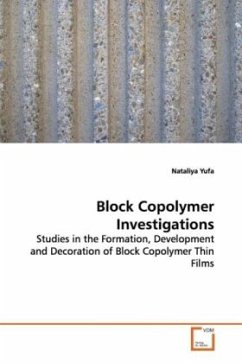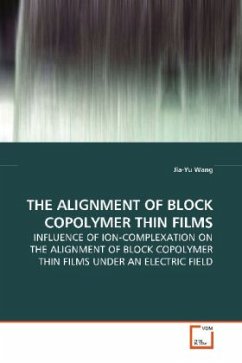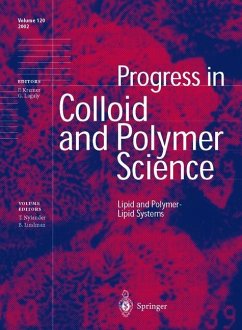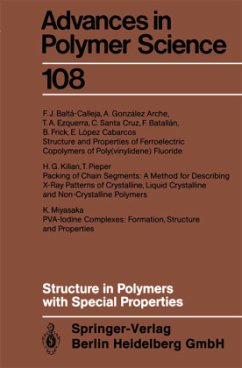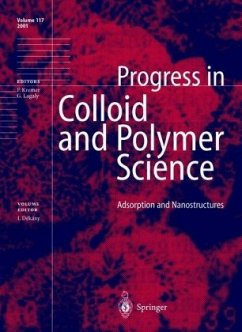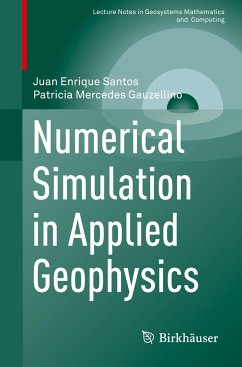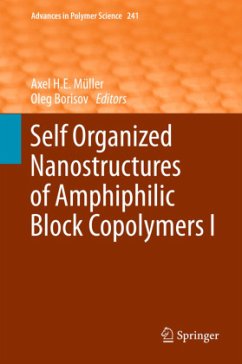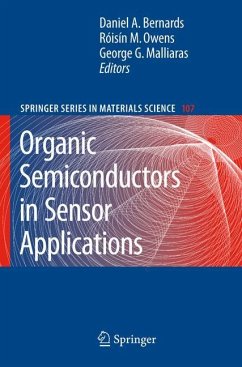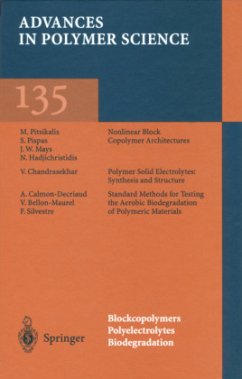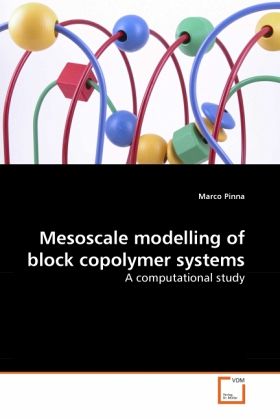
Mesoscale modelling of block copolymer systems
A computational study
Versandkostenfrei!
Versandfertig in 6-10 Tagen
39,99 €
inkl. MwSt.

PAYBACK Punkte
20 °P sammeln!
Block copolymers are fascinating macromolecules which can self assemble into a rich zoo of nano-structures. In this work we try to understand a set of physical phenomena occurring in such systems with the help of computer simulation. We describe a highly efficient parallel implementation of Cell Dynamics Simulation (CDS) and its development in order to address specific problems. The choice of CDS is due to the fact that it is the simplest minimal model of the Ginzburg-Landau type and its ability to describe complex block copolymer systems was debated. The book clarifies this issue by a systema...
Block copolymers are fascinating macromolecules which can self assemble into a rich zoo of nano-structures. In this work we try to understand a set of physical phenomena occurring in such systems with the help of computer simulation. We describe a highly efficient parallel implementation of Cell Dynamics Simulation (CDS) and its development in order to address specific problems. The choice of CDS is due to the fact that it is the simplest minimal model of the Ginzburg-Landau type and its ability to describe complex block copolymer systems was debated. The book clarifies this issue by a systematic study of diblock copolymers subjected to the external influences such as electric field, shear flow, confining surfaces and nanoparticles. Our results prove that CDS can describe such complex phenomena rather well and therefore, is a complementary method to other existing techniques. The work provides a ground for a future development of a tandem simulation where a very fast CDS method can be used as a precursor to more elaborate but slow techniques as, for instance, Dynamic Self-Consistent Field Theory. The book will be of interest for both students and specialists.



